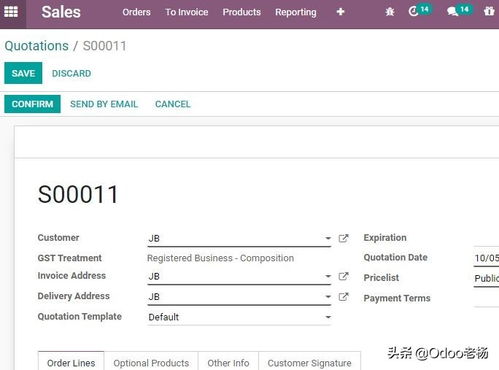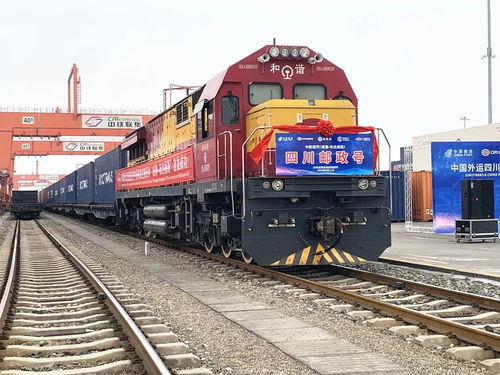Title: Enhancing Ecommerce Operations with Odoo
In the dynamic landscape of ecommerce, businesses are constantly seeking efficient solutions to streamline their operations, enhance customer experiences, and boost overall productivity. Odoo emerges as a comprehensive and customizable ERP (Enterprise Resource Planning) platform that caters to various aspects of ecommerce management. Let's delve into how Odoo can elevate your ecommerce endeavors.
Understanding Odoo:
Odoo's Modular Structure:
Odoo offers a modular structure comprising interconnected applications covering diverse business functions such as sales, inventory management, CRM (Customer Relationship Management), accounting, and more. This modular approach allows businesses to tailor Odoo to their specific requirements, ensuring a seamless integration with existing workflows.
Key Features for Ecommerce:
1.
Website Builder:
Odoo provides a userfriendly website builder equipped with customizable templates, allowing businesses to create engaging and responsive ecommerce websites effortlessly.2.
Product Management:
With Odoo, managing product catalogs, variants, pricing, and inventory becomes more efficient, enabling businesses to keep their online stores uptodate with minimal effort.3.
Order Processing:
Odoo streamlines the order processing workflow, from order placement to fulfillment, invoicing, and shipment tracking, ensuring timely delivery and customer satisfaction.4.
Customer Relationship Management (CRM):
By centralizing customer data and interactions, Odoo CRM empowers businesses to cultivate stronger relationships with customers, personalize interactions, and drive repeat sales.5.
Marketing Automation:
Odoo's marketing automation tools facilitate targeted campaigns, email marketing, abandoned cart recovery, and analytics, enabling businesses to optimize their marketing efforts and drive conversions.
Implementation and Customization:
Consultation and Planning:
Embarking on an Odoo implementation journey starts with thorough consultation and planning. Understanding your business requirements, objectives, and existing processes is crucial for designing a tailored Odoo solution that aligns with your goals.
Configuration and Integration:
Once the requirements are defined, Odoo can be configured and integrated into your ecommerce ecosystem. This involves setting up modules, customizing workflows, importing data, and integrating with thirdparty applications or payment gateways as needed.
Training and Support:
To maximize the benefits of Odoo, comprehensive training sessions should be conducted for your team members to familiarize them with the platform's functionalities and best practices. Additionally, ongoing support ensures smooth operations and timely resolution of any issues that may arise.
Benefits of Odoo for Ecommerce:
1. Streamlined Operations:
By centralizing various business functions within a single platform, Odoo eliminates silos and redundant processes, leading to enhanced efficiency and productivity.2. Scalability:
Whether you're a startup or an established enterprise, Odoo's scalability allows your ecommerce operations to grow and evolve alongside your business, accommodating increasing demands and complexities.3. Costeffectiveness:
Compared to standalone solutions, Odoo offers a costeffective alternative by providing a comprehensive suite of tools at a fraction of the cost, thereby maximizing ROI (Return on Investment).4. Enhanced Customer Experience:
With integrated CRM, marketing automation, and responsive website design, Odoo enables businesses to deliver personalized experiences, prompt support, and seamless transactions, fostering customer loyalty and satisfaction.Best Practices and Recommendations:
1.
Customization with Caution:
While Odoo's flexibility allows for extensive customization, it's essential to strike a balance between customization and standardization to avoid complexity and maintain scalability.2.
Regular Updates and Maintenance:
Keeping Odoo and its modules uptodate ensures access to the latest features, security patches, and performance enhancements, safeguarding your ecommerce operations against potential vulnerabilities.3.
Data Security and Compliance:
Adhering to data security standards and regulatory requirements is paramount in ecommerce. Implement robust security measures, encryption protocols, and data backup strategies to protect sensitive information and maintain compliance.4.
Continuous Improvement:
Monitor key performance indicators (KPIs), gather feedback from users and customers, and iterate on your Odoo implementation to continually optimize processes, drive innovation, and stay ahead in the competitive ecommerce landscape.In conclusion, Odoo serves as a powerful ally for ecommerce businesses seeking to streamline operations, enhance customer experiences, and achieve sustainable growth. By leveraging Odoo's modular architecture, customization capabilities, and integrated functionalities, businesses can embark on a transformative journey towards ecommerce excellence.











